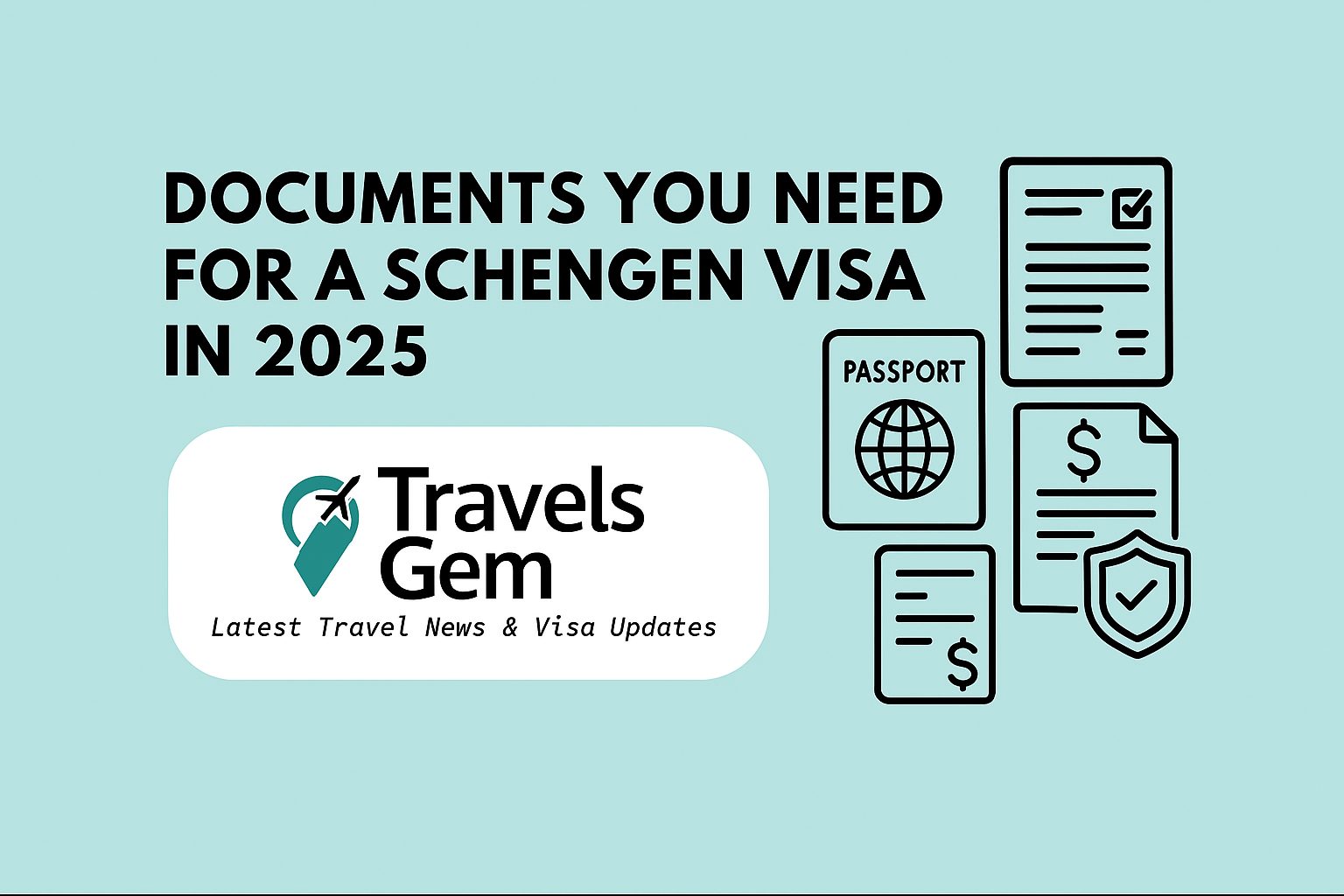As of April 30, 2025, applying for a Schengen visa requires careful preparation and adherence to updated requirements. This comprehensive guide outlines the essential documents needed for a successful application.
Understanding the Schengen Visa
The Schengen visa permits short-term travel (up to 90 days within a 180-day period) across 29 European countries, including France, Germany, Italy, and Spain. It’s suitable for tourism, business, family visits, or cultural events.
Essential Documents for Schengen Visa Application
1. Completed Visa Application Form
Obtain and fill out the official Schengen visa application form accurately. Ensure all sections are completed and signed. The form can typically be downloaded from the embassy or consulate’s website of the country you plan to visit.
3. Recent Passport-Sized Photographs
Provide two recent color photographs that meet Schengen visa photo requirements:
- Size: 35×45 mm.
- White background.
- Neutral facial expression, no headwear (unless for religious reasons).
4. Travel Itinerary
Include a detailed itinerary of your trip, such as:
- Flight reservations (round-trip).
- Accommodation bookings for the entire stay.
- Daily plans or tour schedules, if available.
5. Proof of Accommodation
Submit documents confirming your accommodation:
- Hotel reservations.
- Rental agreements.
- Invitation letter from a host, if staying with friends or family.
6. Travel Medical Insurance
Provide proof of travel medical insurance covering:
- Minimum coverage of €30,000.
- All Schengen countries.
- Medical emergencies, hospitalization, and repatriation.
7. Proof of Financial Means
You must prove that you can financially support yourself during your stay. This includes:
- Personal bank statements for the last 3–6 months
- Payslips or employment contracts
- Sponsor letter (if someone else is covering your expenses)
- Income tax returns
8. Cover Letter
A personalized letter explaining your reason for travel, duration of stay, who is accompanying you, and any other relevant details.
9. Proof of Civil Status
Examples include:
- Marriage certificate
- Birth certificates of children (if they’re traveling with you)
- Divorce certificate or spouse’s death certificate if applicable
10. Employment/Student Documents
If employed:
- Letter from employer stating position, salary, and permission of leave
- Payslips (usually 3 months)
If self-employed: - Business license and tax documents
If a student: - Enrollment letter from your school/university
- No objection letter from your institution
11. Visa Fee Payment
As of 2025, the standard Schengen visa fee is €90 for adults (increased from €80 in 2024) and €45 for children aged 6–12. Children under 6 are exempt. Payment receipts must be included with your application.
New Changes to Note in 2025
ETIAS Requirement (Effective 2025):
Travelers from visa-exempt countries must now apply for ETIAS (European Travel Information and Authorisation System) before entering the Schengen Zone. Though ETIAS is not required for Schengen visa applicants, it’s important to distinguish between the two.
Entry/Exit System (EES):
The EES electronically records entry and exit of third-country nationals, replacing the manual passport stamping. It’s already being implemented across most external Schengen borders.
Biometric Data
Fingerprinting and facial image capture continue to be part of the application process. If your biometrics were submitted within the last 59 months, re-submission may not be necessary.
Appointment & Processing Time
You must book a visa appointment with the relevant consulate or visa center. Applications should be submitted no earlier than six months and no later than 15 calendar days before the intended travel date. Processing usually takes 15 days, though it can take longer depending on individual circumstances or peak seasons.
Conclusion
Ensuring that you have the correct documents for your Schengen visa in 2025 will significantly boost your chances of approval. Pay attention to country-specific nuances, always verify with the official embassy site of the Schengen country you’re applying to, and prepare your application at least one month in advance to avoid last-minute stress.





